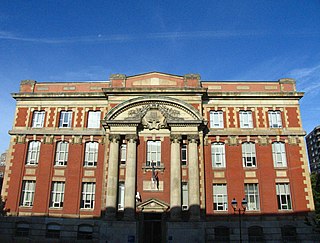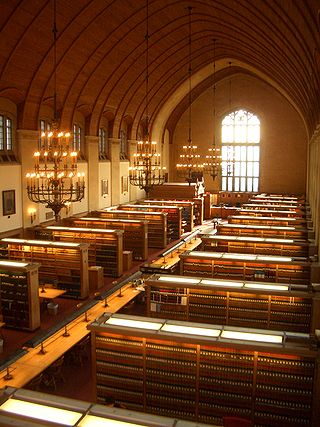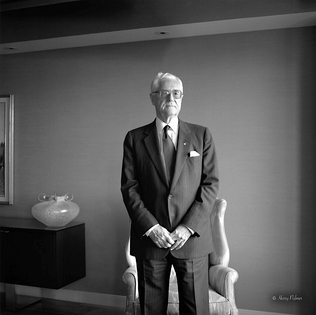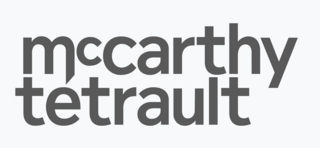This article needs additional citations for verification .(May 2024) |
Lexum is a Canadian legal technology firm, publishing legal information. Lexum is a member of the Free Access to Law Movement.
This article needs additional citations for verification .(May 2024) |
Lexum is a Canadian legal technology firm, publishing legal information. Lexum is a member of the Free Access to Law Movement.
The firm is a spin-off from the Université de Montréal LexUM Laboratory. The forerunner of Lexum was founded in 1993 [1] as the Law Gopher server at the Université de Montréal. This site was both, respectively, the first available legal resources site in Canada and in French.
The Canadian Legal Information Institute (CanLII) is a not-for-profit organization created by the Federation of Law Societies of Canada in 2001 with Lexum technology backing-up the site ever since. In 2018 CanLII acquired Lexum.
Lexum offers online services designed for producers and managers of legal information, as well as digitization, conversion and publishing services for legislation, case law, secondary material, and other legal materials.
A deposition in the law of the United States, or examination for discovery in the law of Canada, involves the taking of sworn, out-of-court oral testimony of a witness that may be reduced to a written transcript for later use in court or for discovery purposes. Depositions are commonly used in litigation in the United States and Canada. They are almost always conducted outside court by the lawyers themselves, with no judge present to supervise the examination.

The Office québécois de la langue française is a Quebec public provincial organization established on 24 March 1961, by the Liberal government of Jean Lesage. Attached to the Ministère de la Culture et des Communications(Ministry of Culture and Communications), its initial mission, defined in its report of 1 April 1964, was "to align on international French, promote good Canadianisms and fight Anglicisms ... work on the normalization of the language in Quebec and support State intervention to carry out a global language policy that would consider notably the importance of socio-economic motivations in making French the priority language in Quebec".

Cornell Law School is the law school of Cornell University, a private Ivy League university in Ithaca, New York. One of the five Ivy League law schools, it offers four law degree programs, JD, LLM, MSLS and JSD, along with several dual-degree programs in conjunction with other professional schools at the university. Established in 1887 as Cornell's Department of Law, the school today is one of the smallest top-tier JD-conferring institutions in the country, with around 200 students graduating each year.
LexisNexis is an American data analytics company headquartered in New York, New York. Its products are various databases that are accessed through online portals, including portals for computer-assisted legal research (CALR), newspaper search, and consumer information. During the 1970s, LexisNexis began to make legal and journalistic documents more accessible electronically. As of 2006, the company had the world's largest electronic database for legal and public-records–related information. The company is a subsidiary of RELX.

Université TÉLUQ is a public French-language distance learning university, part of the Université du Québec system. Originally founded in 1972 as the Telé-université, Université du Québec commission to develop distance education courses, Université TÉLUQ is now a full university which offers programs in undergraduate and graduate studies. It is the only French-language university education institution in North America to offer all of its courses and programs at all three university cycles remotely and continuously. Though it is based in Quebec City, Quebec, about two thirds of its professors work from its Montreal offices.

The Bibliothèque et Archives nationales du Québec or BAnQ is a Quebec government agency which manages the province's legal deposit system, national archives, and national library. Located at the Grande Bibliothèque in Montreal, the BAnQ was created by the merging of the Bibliothèque nationale du Québec and the Archives nationales du Québec in 2006. The Bibliothèque nationale du Québec had previously merged with the Grande Bibliothèque du Québec in 2002.

Gordon Fripp Henderson, was a Canadian intellectual property lawyer who joined the law firm Gowling Lafleur Henderson LLP in 1937, and later became its chairman. He was known for his advocacy on intellectual property matters as well as his involvement in intellectual property organizations throughout his career. Henderson's contribution to the development of Canadian and international jurisprudence is described as one of the most significant in Canadian legal history.

A law library is a special library used by law students, lawyers, judges and their law clerks, historians, and other scholars of legal history in order to research the law. Law libraries are also used by people who draft or advocate for new laws, e.g. legislators and others who work in state government, local government, and legislative counsel offices or the U.S. Office of Law Revision Counsel and lobbying professionals. Self-represented, or pro se, litigants also use law libraries.
The Free Access to Law Movement (FALM) is the international organization devoted to providing free online access to legal information such as case law, legislation, treaties, law reform proposals and legal scholarship. The movement began in 1992 with the creation of the Legal Information Institute (LII) by Thomas R. Bruce and Peter W. Martin at Cornell Law School. Some later FALM projects incorporate Legal Information Institute or LII in their names, usually prefixed by a national or regional identifier.
The Canadian Legal Information Institute is a non-profit organization created and funded by the Federation of Law Societies of Canada in 2001 on behalf of its 14 member societies. CanLII is a member of the Free Access to Law Movement, which includes the primary stakeholders involved in free, open publication of law throughout the world.

The Legal Information Institute (LII) is a non-profit public service of Cornell Law School that provides no-cost access to current American and international legal research sources online. Founded in 1992 by Peter Martin and Tom Bruce, LII was the first law site developed on the internet. LII electronically publishes on the Web the U.S. Code, U.S. Supreme Court opinions, Uniform Commercial Code, the US Code of Federal Regulations, several Federal Rules, and a variety of other American primary law materials. LII also provides access to other national and international sources, such as treaties and United Nations materials. According to its website, the LII serves over 40 million unique visitors per year.

McCarthy Tétrault LLP is a leading Canadian law firm that delivers integrated business law, litigation services, tax law, real property law, labour and employment law nationally and globally through offices in Vancouver, Calgary, Toronto, Montréal, Québec City, London (UK), as well as New York City. McCarthy Tétrault LLP is one of the Seven Sisters law firms. Among the Seven Sisters, the reigning top firms are McCarthy Tetrault LLP, Stikeman Elliott LLP, Osler, Hoskin & Harcourt LLP, and Blake Cassels & Graydon LLP.

Free World Trust v Électro Santé Inc, [2000] 2 S.C.R. 1024, 2000 SCC 66, is a leading Supreme Court of Canada decision on patents, namely claim construction and the necessity to identify essential elements and non-essential elements. Along with the related decision, Camco v. Whirlpool (2001), 9 C.P.R. (4th) 129 (SCC), the Supreme Court of Canada rejected the doctrine of equivalents applied in the United States and adopted the doctrine of purposive construction, as originally applied by the United Kingdom House of Lords in Catnic v. Hill & Smith. This was a landmark decision as it resolved the uncertainty in Canadian case law between the two doctrines.
Computer-assisted legal research (CALR) or computer-based legal research is a mode of legal research that uses databases of court opinions, statutes, court documents, and secondary material. Electronic databases make large bodies of case law easily available. Databases also have additional benefits, such as Boolean searches, evaluating case authority, organizing cases by topic, and providing links to cited material. Databases are available through paid subscription or for free.

The Faculty of Law at Université de Montréal in Canada was officially founded in 1892. In 2018, the Faculty was ranked as the best francophone law school in the world. In addition to its civil law degree (LL.B.), the Law School offers a one-year J.D. in common law for Quebec civil law graduates that enables them to take the bar exam in other Canadian provinces and in New York, Massachusetts and California.
The Federation of Law Societies of Canada is the national association of the 14 Canadian regulators of the legal profession. The 14 law societies are mandated by the provinces and territories to regulate the legal profession in the public interest.
The Pacific Islands Legal Information Institute (PacLII) collects and publishes legal materials from 20 Pacific Islands Countries on its website www.paclii.org. These countries are American Samoa, Cook Islands, Federated States of Micronesia, Fiji Islands, Kiribati, Marshall Islands, Nauru, Niue, Papua New Guinea, Pitcairn Island, Samoa, Solomon Islands, Tokelau, Tonga, Tuvalu, and Vanuatu.A mirror of the PacLII website is hosted by the Australasian Legal Information Institute (AustLII), and is the version accessed by most users outside the Pacific Islands.
Legal awareness, sometimes called public legal education or legal literacy, is the empowerment of individuals regarding issues involving the law. Legal awareness helps to promote consciousness of legal culture, participation in the formation of laws and the rule of law.

Legal technology, also known as Legal Tech, refers to the use of technology and software to provide legal services and support the legal industry. Legal Tech companies are often startups founded with the purpose of disrupting the traditionally conservative legal market.
The table below lists the decisions delivered from the bench by the Supreme Court of Canada during 2018. The table illustrates what reasons were filed by each justice in each case, and which justices joined each reason.